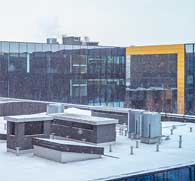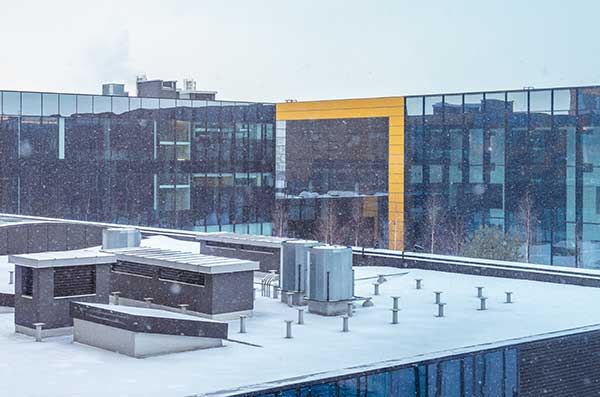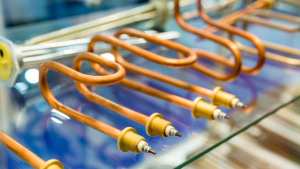It’s snow season again and everyone’s getting ready before the worst snowfall and ice hit. While you may be concerned primarily with other aspects of your operations, spare a thought for your hardworking HVAC system. But what exactly does winter weather do to a HVAC system? We need to know what exactly an HVAC system does for us—during winter your HVAC simply takes heat from outside and moves it inside, keeping your office comfortable and warm. But how can this happen if the outside is already freezing? Your system doesn’t know the difference, and it’ll do its job as best it can—but at the cost of your bottom line. Some parts of the HVAC system need to be placed outdoors, so it isn’t going to be immune to the effects of the colder outdoor temperatures and the many environmental factors that go along with it.
Snowfall can choke your system
During heavy snowfall, an HVAC unit can become smothered in a mound of snow that could potentially restrict the operation of the unit. Since HVAC units require airflow to operate effectively, keeping an eye on your system when snow is piling up can prevent major problems. Keeping snow clear of fans and other components such as the fins near the condenser will alleviate excess stress on the heat pump. Be sure not to actually contact the unit with your shovel or any tool while clearing snow. Even a couple feet of snow can affect a heat pump. Visually inspect the outdoor unit to be sure it is not covered in snow or damaged. An impaired heat pump can drive up the electric bill or leave you—and your business—freezing.
Ice buildup can break the bank
Ice can encase an HVAC unit and cause significant problems. While people in warmer climates might not have this problem, Michigan is especially prone to these kinds of issues. The ice buildup impairs the coils of a heat pump. Although light ice buildup is not a problem as heat pumps have defrost cycles to deal with light ice, sleet in colder temperatures or freezing rain can cause major buildup. Ice buildup can cause the system to emergency shut off and stop heating the building and potentially cause pipes to freeze and burst. Ice buildup can also cause the system to overwork with excessive cycling, driving up electricity costs and causing excessive wear on components. Be sure the defrost cycle is working properly on your heat pump before the worst hits.
A lack of maintenance can leave you cold
There are a myriad number of small things that can go wrong with an HVAC system in winter—filters can get clogged, pipes can burst or freeze, electrical systems can go haywire. The moment you notice something wrong with your heating system, whether it be a sound, a smell, or even an issue keeping up with the set temperature, make the call for help. A professional HVAC technician can help diagnose the system to prevent a breakdown and help keep you comfortable during these cold winter days.
Professional HVAC technicians know better than anyone else how to make sure your heating and cooling systems are in shape for the colder months. All furnaces, heaters, and air filters should be checked before it becomes too cold to operate – the worst case scenario is you’ll have to buy or replace equipment in the middle of winter’s coldest weeks. Suffice to say, getting this kind of work done is expensive and can even be dangerous. Even repairs that might have been simple during spring or summer can become very difficult during winter. This is a situation you definitely don’t want to be in during the middle of winter.
We at Level One HVAC are ready to respond to all your HVAC and Building Automation needs. Give us a call at (248) 486-6500 if you’d like to know more. If you don’t have time to call, you can fill in our online contact form and someone from our staff will be in touch with you shortly.
Visit our social media accounts for more information: Facebook Fan Page / Twitter Feed / Google+ Account / LinkedIn Company Page














